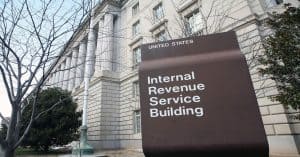New York State Probate Manhattan How Does New York State Probate Manhattan Work
New York State probate Manhattan has many components. If you are the person in charge of the estate and are going to be probating a will or doing probate without a will in New York, here’s roughly what the process would look like:
- you get appointed by the court to be in charge of the estate
- you locate estate property
- pay the decedent’s debts and taxes
- resolve any disagreements
- and finally, distribute the remainder of the property to the heirs
New York State probate Manhattan steps can vary and they can overlap. To be successful, you’d have to carefully complete each one of those steps. You would greatly benefit from having a lawyer represent you throughout the process.
Become the Personal Representative
You cannot collect and distribute the inheritance until you are appointed by the court to be in charge of the estate. Once appointed, you are called the “personal representative.”
Remember, just because you are nominated as the executor by the will or are the closest of kin does not automatically make you a personal representative. Probating a will in New York means applying to the Surrogate’s Court of the county where the deceased person resided and have the court approve that application. Same with probate in New York without a will. That’s the New York probate procedure. Once the court approves your application, the court will issue you an official certificate from the State of New York, which gives you an official capacity to act on behalf of the estate.
As part of New York State probate Manhattan, you can apply to become the personal representative if you are the executor nominated by the will. If there is no will, you can apply to be in charge of the estate if you are the closest relative who has the preference.
In New York, a personal representative is called “an executor” if there is a will and “an administrator” if there is no will. That’s just the terminology in New York probate procedure. In reality, there is little functional difference between “executor” and “administrator.”
Locate the Assets of the Estate
Once the court appoints you as the personal representative of an estate, you will need to figure out what assets the estate consists of. Most decedents do not leave behind a complete and updated list of their assets, so you’ll have to do some hunting and legwork.
The decedent’s place of residence is the best place to find documents showing what the decedent owned. Review the decedent’s financial statements, deeds, titles, stock certificates, bond certificates, and any contracts or financial documents.
Tax returns are very useful for finding assets.
If you find the contact information of the decedent’s financial advisors, accountants and attorneys, great! Get in touch with them. Use your authority as a personal representative to have those professionals supply you with information about the decedent’s assets.
As part of the New York State probate Manhattan, you should review the decedent’s financial statements for signs of assets that you could have missed. Financial statements can contain transfers to bank accounts or payment of expenses for properties. Make a list of those bank accounts and properties and follow up on them.
File an Inventory of the Estate With the Court
As part of New York State probate Manhattan and probating a will in New York, you need to file an inventory of the estate within six months of being appointed as the personal representative (Form 207.20). It’s a legal form that any estate attorney has. The inventory’s main feature is a list of the assets that you were able to find. This is an important part of New York State probate Manhattan.
Keep Paying Mortgages and Utilities
You will need to inform the bank that the owner died and have the bank reflect on the account that the mortgage will be paid by the estate. You will also have to keep paying the utility bills.
Taxes
Most estates are not large enough to trigger an estate tax liability. However, if the estate is more than $1 million, it is best to consult with an estate attorney to find out if there are any estate tax forms that you need to fill out. For some estates, you would need to fill out tax forms even if no estate tax is due.
It is possible that the decedent had past tax debt, such as Federal or State income tax. If you find out that the decedent owed back taxes, you would have to pay the back taxes from the estate.
Paying the Decedent’s Debts
In the process of locating the assets of the estate, you may have also located the debts. If anything, debts are usually easier to locate than assets! You and the beneficiaries of the estate are not personally responsible for the decedent’s debts. But it is your responsibility as the personal representative to pay those debts out of the estate.
The decedent’s debts may include attorneys’ fees for work done on the estate, credit card bills, medical bills, utility bill, etc. Do not ignore those debts and do not distribute the assets to beneficiaries instead of paying creditors. You do not want to give the creditors the right to go after you personally.
In addition to debts that you have discovered, there may be other debts that you were not able to see. You may see creditors making claims in an estate. If that happens, you have the option of paying the claim or denying the claim and forcing the creditors to prove that the claim is valid. Creditors have seven months to submit claims. If they miss that deadline, their claims become null and void. As part of New York State probate Manhattan, you should take creditors seriously.
Calculating Your Commissions
As a personal representative, you are entitled to commissions as part of New York State probate Manhattan, at the following percentages:
• 5% of all sums of money not exceeding $100,000
• 4% of all sums not exceeding $200,000
• 3% of all sums not exceeding $700,000
• 2.5% of all sums not exceeding $4,000,000
• 2% of all sums not exceeding $5,000,000
Ask your estate lawyer for what is included in the base amount used to calculate the commissions. You can disburse those commissions to yourself before distributing assets.
Getting a Release from Beneficiaries
One of the most important aspects of New York State probate Manhattan is to get a consent and release from the beneficiaries to have it in writing that they are satisfied with what they are receiving from the estate and to make sure that they do not have the ability to sue you right after they get their distribution.
Distributing the Assets
This is the part of New York State probate Manhattan that everyone has been looking forward to! You have paid all the debts of the estate, filed your inventory in six months, waited until seven months are up after you are appointed, paid any taxes due and did everything else you had to do as an executor. You are almost ready to distribute the assets of the estate to the beneficiaries. But before you do so, make sure that you prepare an informal accounting and have the beneficiaries sign waivers and releases prepared by your estate attorney. You want them to agree in writing not to sue you after receiving the distributions. You do not want to have a beneficiary receive money from the estate and then use that money to get their own estate lawyer and sue you.
You can distribute assets “in-kind” or as money. If you have doubts as to how you should distribute your assets, you need to work with your attorney, the beneficiaries and their attorneys to figure it out. Make sure that everyone is on the same page and there are no disagreements.
Always have all agreements in writing, do not take anyone at their word alone. The best way to do this is to have your estate attorney prepare an “informal accounting” which outlines the proposed distribution and have all of the beneficiaries sign it. This way they agree not to change their mind later and turn around and sue you.
Some Property Does Not Need Probate
Some property already has an after-death owner. That type of property is not part of New York State probate Manhattan. Examples include:
- Joint Bank Account. If the decedent had a joint bank account, the remaining co-owner just takes over. The remaining co-owner can bring the death certificate to the bank and have the bank remove the decedent’s name from the bank account.
- Assigned Beneficiaries. If the decedent had a bank account or a life insurance policy with named beneficiaries, the bank will disburse the funds directly to the beneficiaries. All the beneficiaries will need to do is go to the bank, show the death certificate and fill out some paperwork.
- Real Estate Owned With Spouse. If the decedent owned a house together with their spouse, the house goes to the surviving spouse. The surviving spouse needs to go to the county recorder’s office, show the clerk the death certificate, and fill out some paperwork and the county recorder will transfer the house to the surviving spouse’s name.
You can’t always tell if the property is part of the New York State probate Manhattan or not. In fact, we often see disagreements between various parties regarding whether or not a property is part of New York State probate Manhattan. If you have any doubt over ownership or probate status of the property, ask your estate attorney.
Dealing with Disagreements in New York State Probate Manhattan
As part of New York State probate Manhattan, you will have to give notice of the proceeding to everyone potentially interested in the estate, such as spouse, children or siblings. Upon receiving the news, some beneficiaries may decide to object. They may claim that either the will is invalid or you are unfit to serve as a personal representative.
If someone objects to you becoming in charge of the estate, you will need to have an experienced estate attorney defend the objections. You want to make sure that you are appointed as a personal representative of the estate despite the beneficiaries’ allegations.
You will not become a full personal representative until you resolve the objections to your appointment, either through the court or through negotiations. The court may still grant you limited temporary powers to manage the estate. But you will not be able to make any distributions to beneficiaries and heirs until the court resolves all objections to your appointment.
If you succeed and the court appoints you as the personal representative but the beneficiaries disagree with the way you want to distribute the assets, they will demand that you file a complete formal accounting. They may then object to the accounting. In the ensuing contested accounting proceeding, the beneficiaries would try to prove that you are not disclosing estate assets or that you are not distributing the assets in the correct way.
You will need an experienced estate lawyer to represent you in that process. The lawyer will make sure that the beneficiaries get only what they are entitled to.
The Role of the Estate Lawyer in New York State Probate Manhattan
New York State probate Manhattan can be difficult to navigate. It is filled with technicalities, deadlines, traps for the unwary and red tape. For that reason, you want to have a New York estate lawyer navigate you through the New York State probate Manhattan, whether someone has died without a will or you are probating a will.
Here are some of the things that the estate lawyer will do as part of New York State probate Manhattan:
- fill out the petition
- obtain all the supporting documents
- submit the petition and the supporting documents to the court
- attend court hearings
- follow through to make sure that you are appointed as the personal representative
- locate assets
- value assets
- deal with disagreements
- draft and submit an estate accounting
- defend estate accounting
- conduct a trial
If your estate has disagreements, seek the services of an estate litigation attorney with a proven track record of results. This is crucial for your best chance of getting the inheritance that you are entitled to.
If all goes well, you should be able to
- have the court appoint you as the personal representative
- marshal the assets
- pay the claims
- resolve any disagreements and
- distribute the assets to the right heirs and in the right amount
If you are looking for an estate lawyer who will make the New York process easier and help you defend yourself and protect your rights, give me a call right now at (212) 233-1233.
























